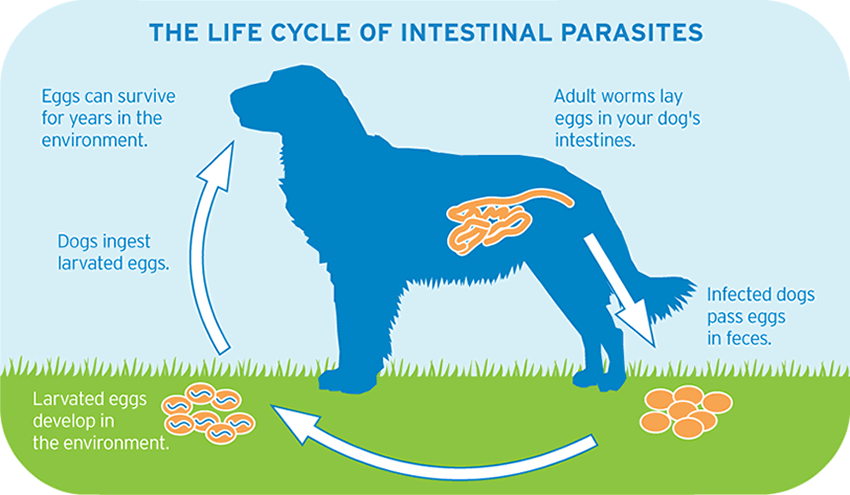
What are worms in dogs?
There are four types of intestinal worms. All pose a serious health risk to your dog if they go untreated, with roundworm being the most serious. Other types of intestinal worms found in the UK are hookworms, whipworms and tapeworms. Dogs can become infected by their mother, contaminated soil or consuming contaminated meat.
Most puppies with roundworms or hookworms get them passed down from their mothers. Other worms are contracted by how your dog interacts with its environment.
Here are some common scenarios in which dogs can contract worms:
- Dog feces, where roundworm eggs grow
- Licking their skin or coat, which may potentially lead to hookworms
- Contaminated soil, grass or sand, which can result in whipworms
- Fleas or rodents, which can result in tapeworms
How do I know if my dog has worms?
Coughing, diarrhea, vomiting and lethargy are the general signs the dog has worms. Other symptoms depend on the type of worm. For example, if your dog has a tapeworm, clear identifiers can be rapid weight loss or what appears to be grains of rice in their stool.
Here’s how to tell if your dog has worms based on each of the major parasites:
- Roundworms: Vomiting
- Hookworms: Pale gums
- Whipworms: Diarrhea and weight loss
- Tapeworms: Rice or spaghetti-like worms in faeces and “scooting” it’s bottom on the ground
- Lungworms: Persistent Cough
- Although not an intestinal worm, lungworm is fairly common in the UK and can cause serious disease ond can kill if left untreated: Lungworms:
Even if you pay close attention to the moods and actions of your pet, sometimes it can be difficult to tell if your dog has worms. But if you want to give your vet an idea of what is happening with your pet, these are some of the primary symptoms to watch for.

What steps do I need to take if I think my dog has worms?
While you may suspect your dog is unwell, you may still wonder, “How do you know if your dog has worms?” In most cases, the answers will have to be determined by a faecal egg count. You will need to collect a stool sample, which will be examined microscopically for evidence of worms.
